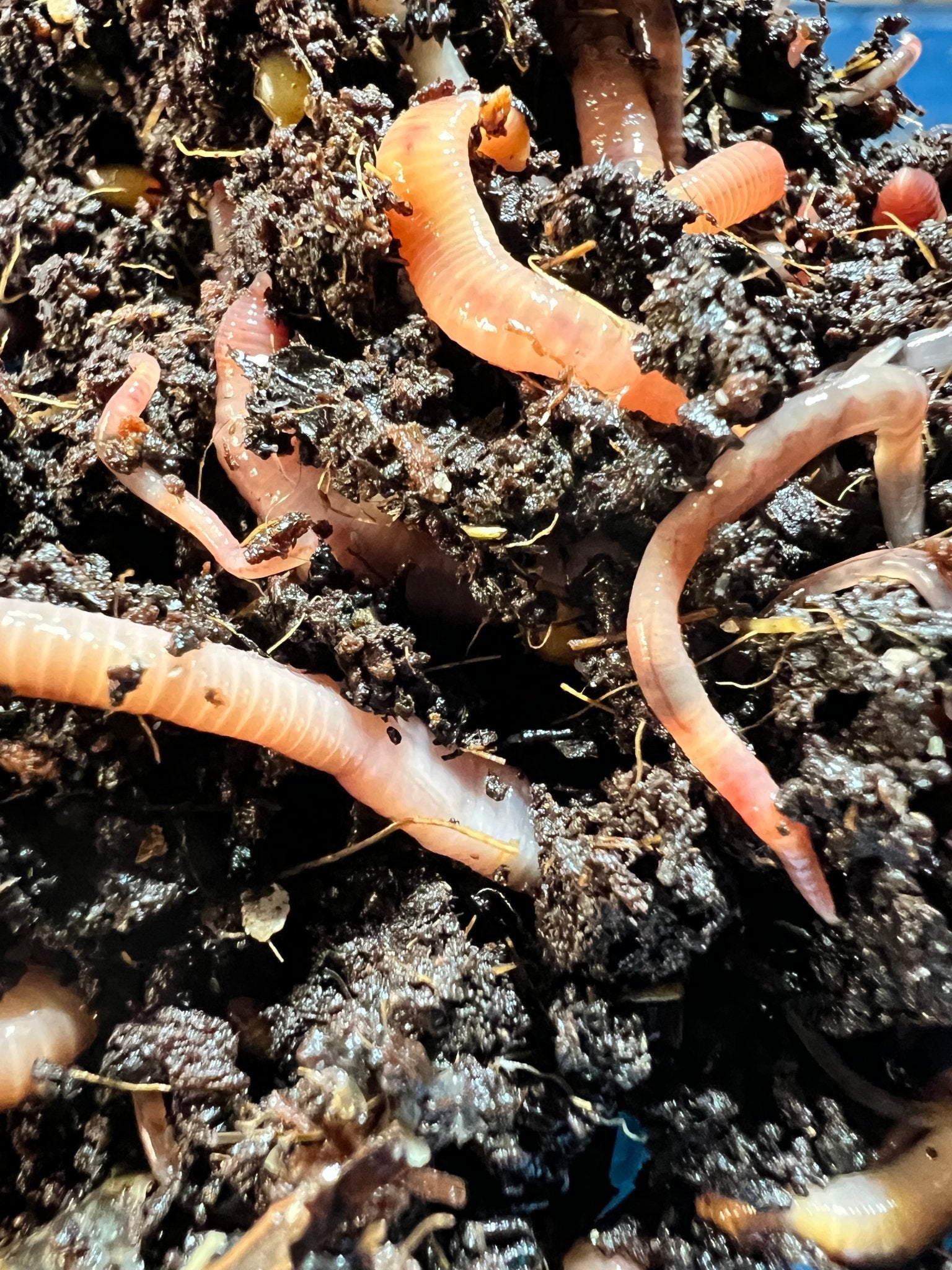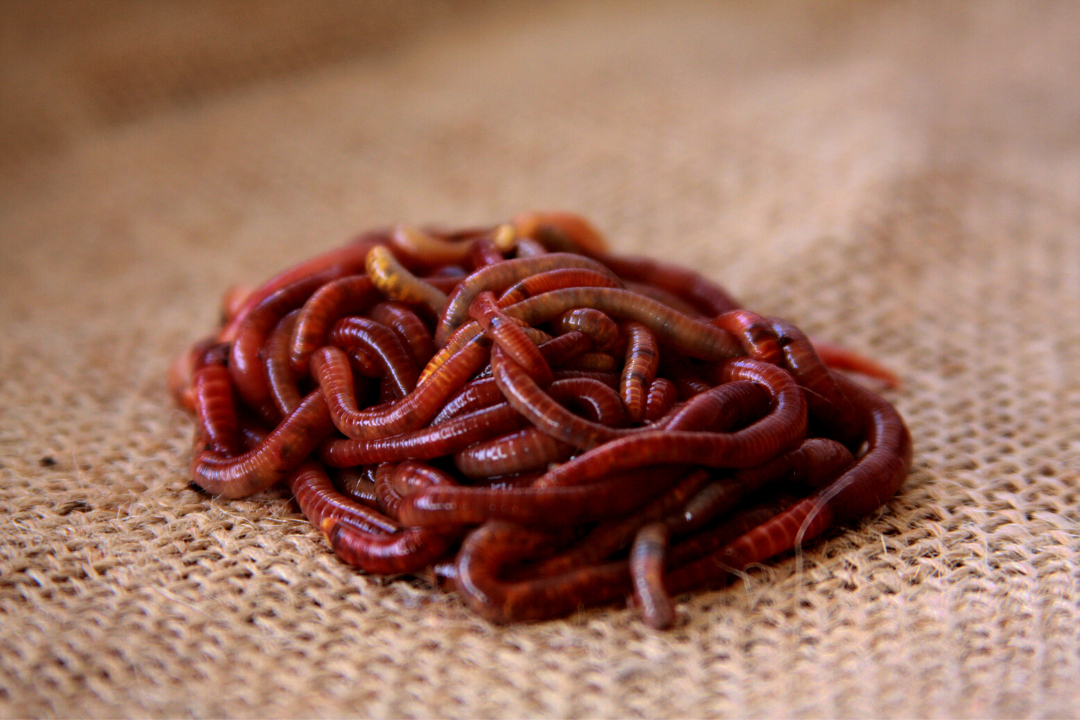The Unbelievable Globe of Red Wigglers: Boost Your Soil Fertility Today
The duty of red wigglers, or Eisenia fetida, in improving dirt fertility is a subject of expanding interest amongst garden enthusiasts and farming professionals. These small yet effective organisms change natural waste right into useful worm spreadings, substantially improving dirt health and wellness and advertising lasting techniques. As we check out the advantages of vermicomposting and the useful actions to create a reliable worm container, the potential impact of these worms on your horticulture success comes to be increasingly evident. Understanding the nuances of their treatment and application may simply change the means you come close to dirt management. What insights can be gained from integrating these remarkable animals right into your gardening routine?
Comprehending Red Wigglers
Red wigglers, clinically referred to as Eisenia fetida, are a types of earthworm that play an important duty in enhancing soil fertility. These worms grow in organic-rich environments, such as compost piles and decomposing plant material, where they eat natural waste and eliminate nutrient-dense castings. Their special anatomy, featuring a fractional body and a clitellum, allows them to replicate swiftly and successfully procedure huge amounts of raw material.

The environmental relevance of red wigglers expands beyond plain waste handling; they add to the dirt food internet, fostering a diverse area of bacteria that further boost dirt health and wellness. Recognizing the biology and actions of red wigglers is essential for harnessing their complete possibility in sustainable agriculture and horticulture techniques.
Benefits of Vermicomposting
(Lake Hickory Bait)Harnessing the power of red wigglers via vermicomposting offers many benefits that dramatically improve dirt wellness and fertility. One of the primary advantages is the manufacturing of nutrient-rich worm spreadings, which are an outstanding all-natural plant food. Red Wiggler Express. These spreadings consist of essential nutrients like nitrogen, phosphorus, and potassium, promoting robust plant development and boosting crop returns
The existence of worm castings boosts dirt structure, allowing for far better water retention and water drainage. Red wigglers assist break down natural issue, speeding up disintegration and recycling nutrients back into the soil.
Vermicomposting additionally fosters microbial activity, which is essential for a healthy and balanced dirt environment. Beneficial microorganisms grow in the presence of worm castings, aiding in the break down of organic materials and improving nutrition accessibility to plants.
Last but not least, vermicomposting works as a reliable waste administration remedy, reducing landfill waste by recycling kitchen scraps and other organic materials. This not only adds to environmental sustainability yet likewise promotes a round economic climate within gardening and farming.
Exactly How to Establish Up a Worm Bin
Establishing up a worm container is a straightforward process that can considerably enhance your composting efforts. Begin by choosing a proper container, which can vary from a commercially available worm bin to a simple plastic or wood box (Red Wiggler Express). Guarantee the container has ample air flow; tiny openings in the lid and sides will certainly assist in air circulation
Following, create a bed linen layer to give a comfortable atmosphere for the red wigglers. This can be made from shredded newspaper, cardboard, or coconut coir, dampened to a wet, sponge-like uniformity. Fill up the bin to around one-third complete with this bedding material.
Once the bed linens is prepared, it's time to present the worms. Red wigglers prosper in organic waste, so location them carefully onto the bedding. Cover the worms with a light layer of added bed linens to assist them accustom.
Feeding Your Red Wigglers
Supplying the ideal food for your red wigglers is vital for their health and wellness and the efficiency of your composting system. Red wigglers flourish on a varied diet regimen, primarily containing natural materials such as vegetables and fruit scraps, coffee grounds, and shredded paper. These products not only provide vital nutrients yet likewise add to the microbial activity in the worm container, which is crucial for the worms' digestion.
It is essential to stay clear of certain foods, such as milk items, oils, and meats, as these can attract parasites and produce unpleasant smells. Furthermore, citrus peels and overly zesty foods must be restricted as a result of their prospective to hurt the worms. A well balanced technique to feeding entails checking the amount of food introduced to the bin, making certain that it is eaten within a practical timespan to stop excess waste buildup.
To promote optimum food digestion, it is useful to cut or shred larger food things before including them to the bin. This method increases the surface area for microbial activity, helping with quicker decomposition and enhancing the overall performance of your composting system. Consistently observing the worms' feeding habits will assist you adjust their diet regimen as necessary.
Utilizing Worm Castings in Your Garden

(Lake Hickory Bait)Incorporating worm castings into your yard can be accomplished by mixing them into the dirt or using them as a leading clothing. The slow-release nature of these castings makes certain that nutrients are readily available to plants over an extended duration, reducing the requirement for synthetic plant foods. Additionally, worm castings include valuable bacteria that advertise healthy dirt environments, enhancing the total resilience of your yard.
To maximize the benefits, aim to use about one component worm spreadings to 3 parts you could try this out soil in your planting beds. Normal applications can cause enhanced crop yields and healthier plants, making worm spreadings an important source for both newbie and seasoned garden enthusiasts alike. By using this all-natural amendment, you can cultivate a successful yard while contributing to lasting gardening techniques.
Verdict
In verdict, red wigglers exemplify the crucial duty of vermicomposting in boosting soil fertility. Their capability to transform natural waste into nutrient-rich castings substantially enhances soil structure and sustains microbial variety.